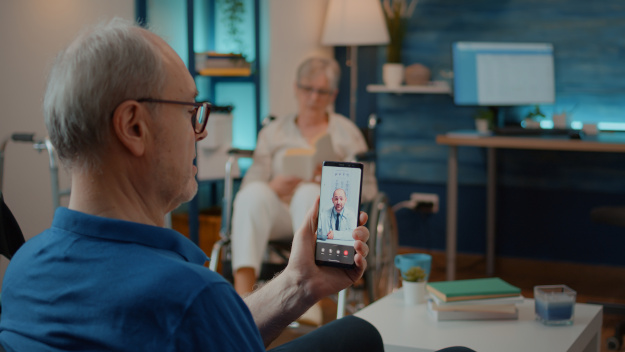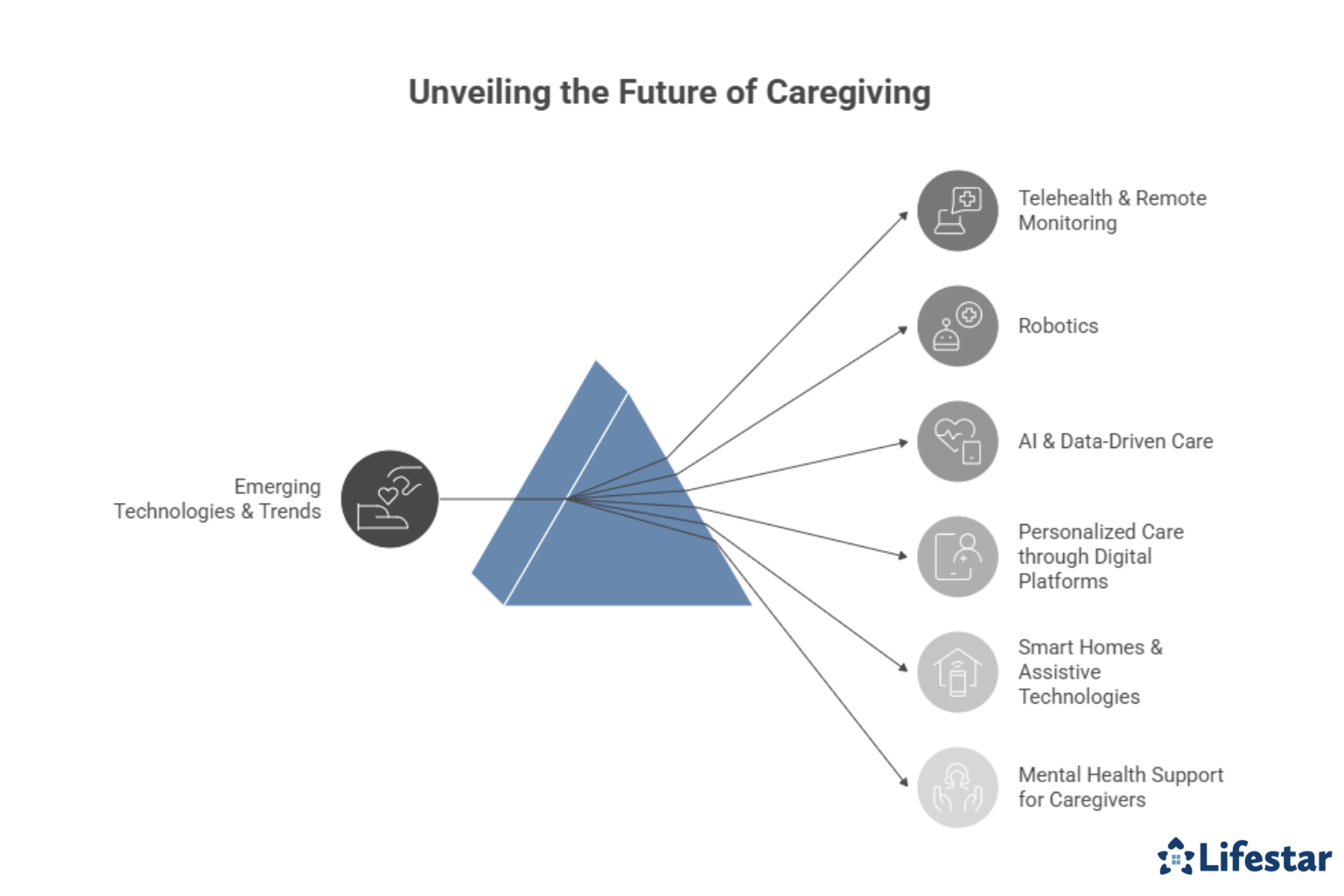
Table of Content
The caregiving industry is evolving rapidly, driven by advancements in technology, demographic shifts, and increasing awareness of the importance of personalized care. These changes are reshaping caregiving as we know it, bringing innovative solutions to address both current challenges and future needs. Here are the key trends and innovations defining the future of caregiving.
The Rise of Telehealth & Remote Monitoring
Telehealth has emerged as a game-changer, allowing caregivers and healthcare providers to monitor and assist seniors in the comfort of their homes. Remote monitoring devices, like wearables and smart sensors, track vital signs and activity levels in real time. This not only ensures timely medical intervention but also provides peace of mind to families and caregivers.
Examples include wearable devices that monitor heart rates, glucose levels, or fall detection. Apps integrated with these devices notify caregivers if any irregularities occur. This technology reduces the need for frequent doctor visits and improves access to care, particularly for those in rural or underserved areas.

Robotics
Robotics is no longer a distant dream—it’s becoming an integral part of caregiving. From robotic assistants helping with daily tasks to advanced machines designed to provide emotional support, robotics is addressing the shortage of caregivers while enhancing the quality of care.
Companion robots, such as Pepper and Paro, are already being used in elder care to reduce loneliness and encourage positive interactions. Similarly, robots like Joy for All provide comfort through lifelike pet simulations. These innovations not only make caregiving more efficient but also focus on boosting the emotional wellbeing of care recipients.
Artificial Intelligence (AI) & Data-Driven Care
AI-powered systems are revolutionizing how caregiving decisions are made. By analyzing patterns in health data, AI can predict health issues before they arise, allowing for proactive interventions. For example, AI tools can identify early signs of cognitive decline in seniors with dementia, enabling timely care planning.
Additionally, AI applications are streamlining administrative tasks like scheduling, medication organization, and resource allocation. This helps caregivers focus more on providing direct, person-centered care rather than paperwork.
Personalized Care through Digital Platforms
Digital platforms and apps are making caregiving more accessible and tailored to individual needs. These platforms connect caregivers, seniors, and medical professionals, creating a collaborative ecosystem that ensures better care outcomes.
Other platforms, such as Wellthy, offer care coordination services to help families manage complex caregiving challenges. These tools simplify the caregiving process and allow for a more personalized approach.
Not every senior has the same care needs, which means they don’t all need the same type of elder care. You can rely on Lifestar Home Care to provide an individualized care plan to meet your elderly loved one’s unique care needs. Our caregivers help seniors focus on healthy lifestyle habits, such as eating nutritious foods, exercising regularly, and maintaining strong social ties, and we offer mentally stimulating activities that can boost cognitive health and delay the onset of dementia.
Smart Homes & Assistive Technologies
The development of smart home technologies is making independent living easier for elderly and disabled individuals. Devices like voice-activated assistants, smart thermostats, and automated lighting systems create a safer and more convenient home environment.
Assistive technologies, such as wheelchair-friendly home designs and smart devices tailored for limited mobility, are enabling aging individuals to live independently for longer. Smart tech solutions are also reducing the physical strain on caregivers by automating repetitive tasks, such as medication reminders and housekeeping.
If you have a senior loved one who needs help maintaining a high quality of life while aging in place, reach out to Lifestar Home Care, a leading provider of home care Oklahoma City families can trust. Our caregivers help seniors focus on healthy lifestyle habits such as eating nutritious foods, exercising regularly, and maintaining strong social ties, and we offer mentally stimulating activities that can boost cognitive health and delay the onset of dementia.
Mental Health Support for Caregivers
Caregiving can be emotionally and physically demanding, often leading to burnout. Recognizing this, there’s a growing focus on providing mental health support for caregivers. Virtual therapy sessions, peer support groups, and wellness apps are some of the tools helping caregivers prioritize their own wellbeing.
Platforms like BetterHelp and Talkspace offer accessible mental health resources for busy caregivers. Additionally, employer-sponsored programs are emerging, providing caregiving-focused benefits and counseling services to reduce stress and improve work-life balance.
Family caregivers need to care for their own wellbeing. If you’re caring for an aging loved one and are feeling overwhelmed, consider hiring a professional caregiver to provide hourly care. Oklahoma City families who want to prevent burnout can turn to Lifestar Home Care. One of our professional caregivers can assist your loved one at home while you take a nap, go to work, run errands, or go on vacation. We will work with you to create a customized home care plan that’s suited for your loved one’s unique needs. Call the Lifestar Home Care team today.